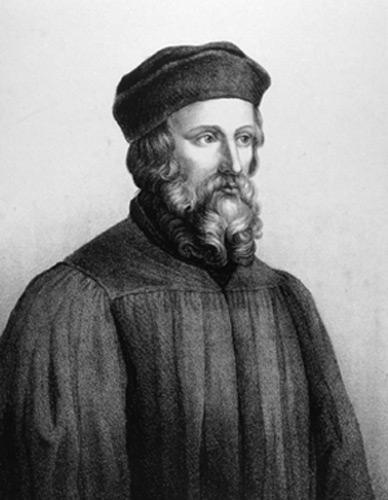The Nationalism of the Protestant Reformation: John Hus, Czech Nationalist

October 4th 2023
By Dr. Adi Schlebusch
This October marks 506 years since Martin Luther initiated the Great Reformation of the Church of Christ. In celebration thereof Pactum will be publishing a series of blog posts on the nationalism of the Reformation in the run-up to Reformation Day on October 31st.
While we will be focusing primarily on the Reformers themselves, I thought it appropriate to start the series with a statement by one of the most famous proto-Reformers of the fourteenth and fifteenth centuries, John Hus (1369-1415). This Czech theologian was a key predecessor to the Reformation in continental Europe. His God-glorifying life came to a sad end after he was convicted for heresy and burned at the stake. Referring in a sermon to the foreign invasion of Bohemia in 1401, Hus proclaimed:
According to every law, including the law of God, and the natural order of things, Czechs in the kingdom of Bohemia should be preferred in the offices of the Czech kingdom. This is the way it is for the French in the French kingdom and for the Germans in German lands. Therefore a Czech should have authority over his own subordinates as should a German.1
Hus’s appeal to God’s law and the natural order signifies his commitment to divine revelation as supremely authoritative. This was, of course, a central doctrinal pillar upon which the Reformation stood. With this appeal to divine revelation, he argues for the Biblical principle of kin-rule (Deut. 17:15) as the ordained order by which states and governments function optimally, and the best means of achieving human flourishing.
His argument is based on the recognition of the nature of God’s created order in establishing families, clans, nations, and races distinctly and separately in order to establish fruitful human frameworks for the optimal functioning of God’s law. Natural affinities are proclaimed as good in Scripture (Romans 1:31; II. Tim. 3:3) precisely because the cultivation of these affinities creates God-honoring societies (Acts 17:26-27).
Hus furthermore recognizes that the reality of ethnic distinctions entails that counterproductive socio-political conditions are generated when government and populace become multicultural. He therefore argues for the preservation of homogeneity in the Bohemian state on the basis of the principle of the golden rule (Matthew 7:12), as reality also testifies that this is in the interest of all peoples.
Finally, his distinction of Bohemia as the land of the Czechs from the “French kingdom” and the “German lands” exemplifies his commitment to the biblical principle of one ethnicity per political unit (Acts. 17:26), in contradistinction to multiculturalism.
1.František Šimek, ed., Mistr Jan Hus: Česká kázání sváteční [Master Jan Hus: Czech holy day sermons] (Prague, 1952).